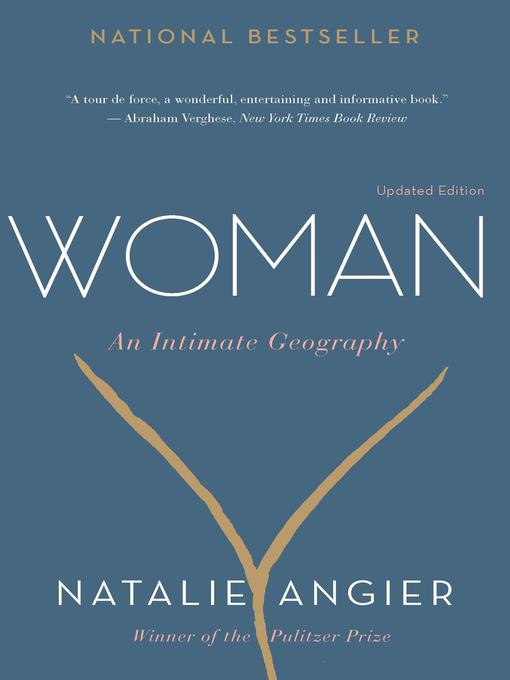
Woman
An Intimate Geography
کتاب های مرتبط
- اطلاعات
- نقد و بررسی
- دیدگاه کاربران
نقد و بررسی

March 29, 1999
Did postmenopausal women invent the human race? Are males more similar to females than females are to males? These are among the many stimulating questions at the core of Angier's provocative "scientific fantasia of womanhood," a spirited and thoroughly informed--if admittedly biased--study of how the body is "a map of meaning and freedom." Angier (The Beauty of the Beastly; Natural Obsessions) presents new theories on the evolution of women's anatomy, physiology and social behaviors. She points out, for example, that the X chromosome has a "vastly higher gene richness" than the Y, which by contrast is "a depauperized little stump," and she champions the argument of anthropologist Kristen Hawkes that the role of postmenopausal grandmothers, who could help younger females nurture their weaned but still dependent offspring, "invented youth.... And in inventing childhood, they invented the human race. They created Homo imperialis, a species that can go anywhere and exploit everything." With wit and verve, Angier discusses such topics as ovulation, conception and birth; the social and physiological functions of breasts; orgasm, mate selection and child-rearing behavior; the complex workings of estrogen; hysterectomy; muscle strength; and female aggression and bonding. Her wide-ranging celebration of the female body engages the intellect but, more importantly, also offers a rigorous challenge to male-oriented theories of biology. BOMC selection; author tour.

December 1, 1998
A Pulitzer Prize winner for the New York Times on being female, both physically and mentally.

Starred review from March 1, 1999
Angier, a Pulitzer Prize^-winning "New York Times" science writer, takes her readers on a fantastic voyage deep inside the female body and kicks over myriad misconceptions about womanhood. She begins with the source, the egg, and travels on from there, celebrating the awe-inspiring complexities of the ovaries, uterus, vagina, breast, and clitoris. Angier's science is exacting yet high-spirited, and her prose is zestfully descriptive and inventive. Her dismantlement of sexist assumptions about everything from lust to women's muscular strength is deft and witty, and her analyses of the mechanics and experiences of menstruation, pregnancy, birth, breastfeeding, mother love, the aggressiveness of girls, and relationships among women are thorough, thrillingly candid, and wholly celebratory. As Angier marvels at and demystifies the transformational powers of the female body, she focuses on the pleasure principle, revealing just how essential the nurturing comfort of touch and the blissful chemistry of orgasm are to our species' survival. Every woman reader will be astonished at all that she didn't know about her own body, and every man will find his admiration and fears confirmed, and all will be edified by Angier's knowledge, lucidity, reasonableness, and warmth. ((Reviewed March 1, 1999))(Reprinted with permission of Booklist, copyright 1999, American Library Association.)

























دیدگاه کاربران